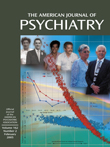Genius Denied: How to Stop Wasting Our Brightest Young Minds
The title gets your attention, but the strength of this book goes considerably beyond the title. It is a highly readable, informative, and thoughtful presentation on one of education’s important but often “invisible” topics—the education of gifted students.
The purpose of the book is to highlight the plight of gifted students, a group that is often forgotten in the politics of school priorities. Attention to gifted students has always been patchwork and usually minimal in the United States, although there have been times when the nation was concerned about its brightest academic students. For example, the years just following Sputnik demonstrated America’s concern with excellence in schools, particularly in math and science.
As the Davidsons accurately point out, the current No Child Left Behind legislation focuses federal attention and educational resources on students with remedial needs. No Child Left Behind legislation makes no overtures to those students well above the academic mean, and the goal of this book is to correct that.
The authors define “genius” as extraordinary intellectual ability. They do an informative job of providing definitions of giftedness and means for identifying gifted students. They make the particularly salient point that there is a national response to IQ measures: there is very little dispute over using IQs to identify students for special needs and remedial classrooms but extensive debate and accusations over the use of IQs to identify gifted students.
The book is a strong compilation of stories of remarkable young people and their parents as well as stories of frustrations with schools. These stories give a “soul” to everything in the book, but the book is more strengthened by its attention to studies and research information.
The sections are short but packed with substance. For example, the section titled Zooming Ahead is five pages long but makes an excellent case for acceleration. The section Achieving Excellence and Equity is eight pages in length, yet it makes a most thoughtful presentation on the complex and nuanced subject of “tension” between excellence and equity. All the sections are characterized by brevity and substance.
Two acquaintances of mine who are not in the field of gifted education read the book and had almost identical comments: “I could not put it down.”
Genius Denied is a book that absolutely should be read. It is readable not just in terms of style but in terms of substance. This book makes a documented and vibrant argument for the importance of meeting the academic and social needs of gifted students. It has the markings of a book that years from now will be looked to as a “marker.”
What Jan and Bob Davidson have done is bring the issue of the education of gifted students to the table of America’s discussion on education. They have written that rare book which is appealing to educators and scholars in the field as well as to the general public. When (not if) schools cease to waste our brightest young minds, Genius Denied will be credited as a catalyst in that effort.



